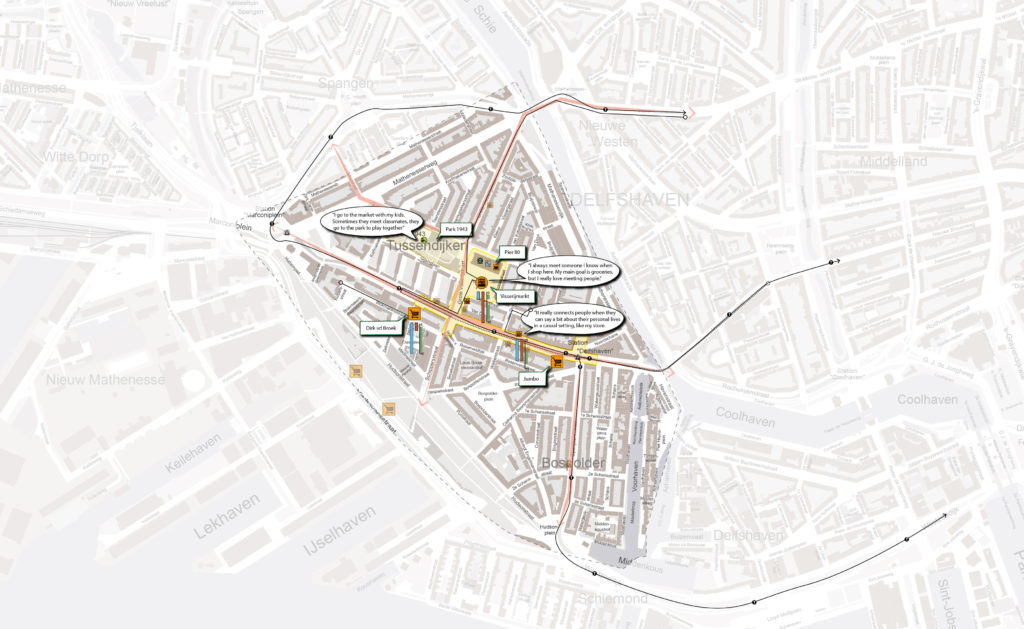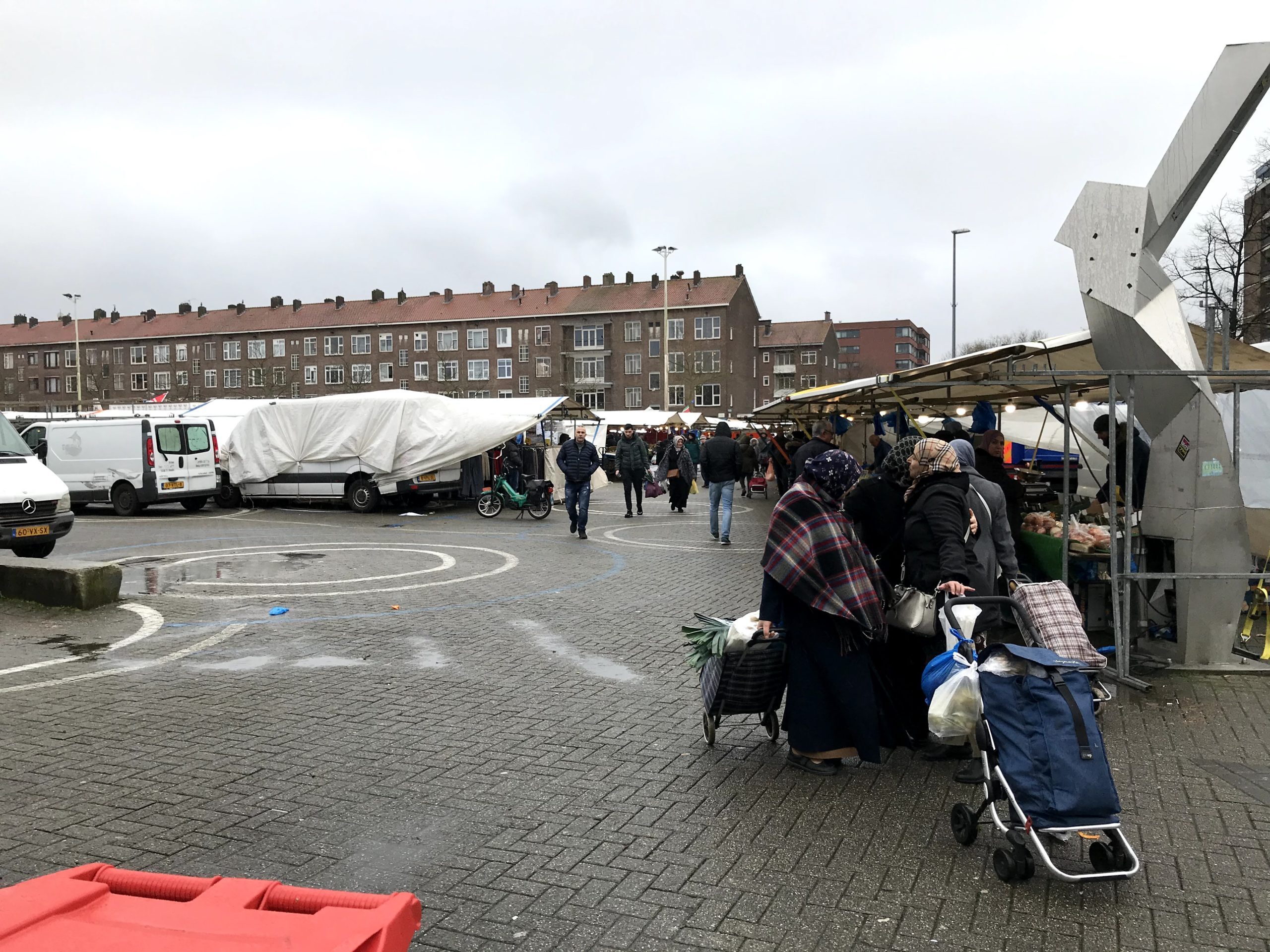In this research we examined how the shopping amenities of Bospolder-Tussendijken act as a platform for connection and social engagement for its customers. We have observed different types of social encounters during our research into the social value of grocery shopping in BoTu. We have been able to make distinctions between types of encounters (long/short, deep/superficial), between customers or with employees and between planned and unplanned encounters.
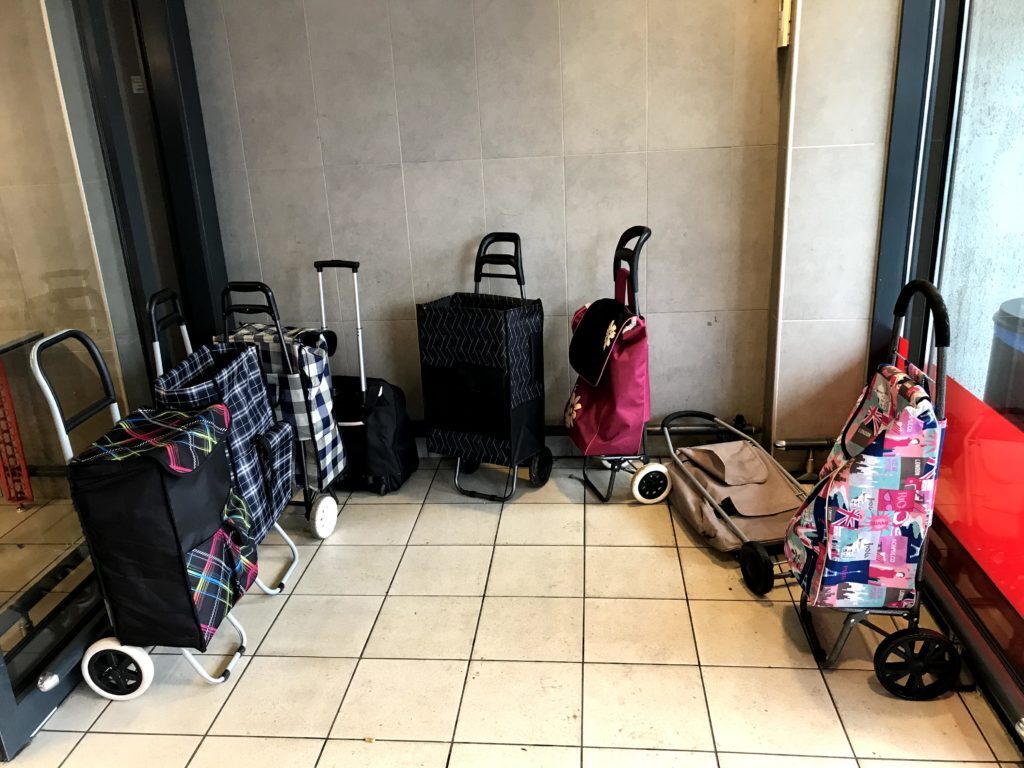
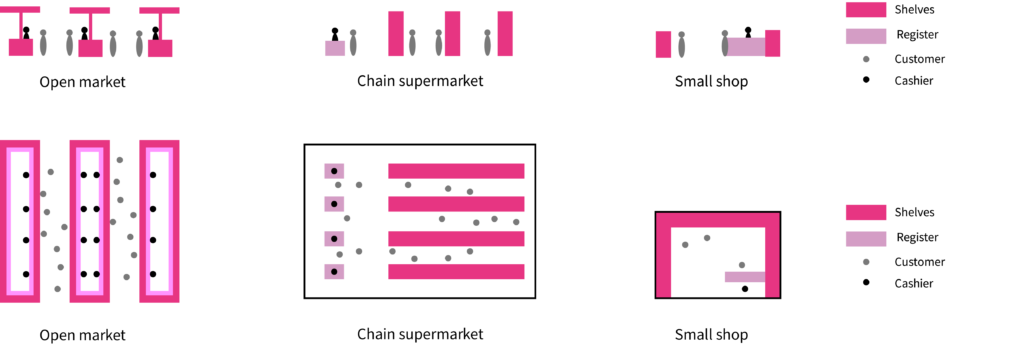
We learned that there is a big difference in the role that the different kinds of shopping amenities have on the social encounters that take place there. At the open market there are plenty of encounters, both planned as well as unplanned, between customers as well as market vendors. Some reasons that we found in our research include: age and personalities of customers, opening times, physical characteristic of the outside market, overall atmosphere and mix of functions.
Compared to the open market, there are less social interactions at larger chain supermarkets. Most of the socializing in the shop happens between people that shop together and know one and other beforehand. The contact between customer and cashier is there, but often brief and formal. This might be due to the physical and organisational set-up of larger chain supermarkets.
At the smaller shops, the contact between customer and vendor is especially valuable. Interpersonal relationships occur in the shops that have existed for a long time and have regular customers. These interactions are most likely stimulated by the intimate atmosphere of the shops.
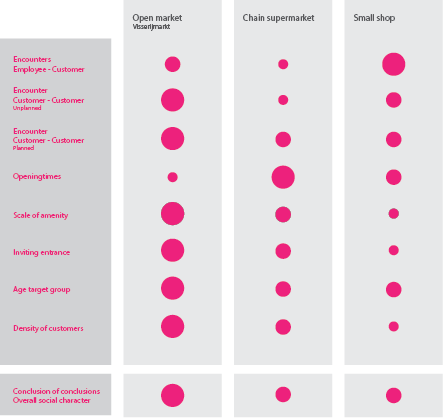
In times of the Coronavirus epidemic, it is hard to accommodate
the social function of shopping amenities due to stricter regulations.
However, BoTu shops still try to find a way to be there
for their customers. We see how the roles of shopping amenities
have changed. While some think that now more than ever
the shop has a social function, others see a switch in roles and
responsibilities to ensure a safe and healthy neighbourhood.

In times of the Coronavirus epidemic, it is hard to accommodate
the social function of shopping amenities due to stricter regulations.
However, BoTu shops still try to find a way to be there
for their customers. We see how the roles of shopping amenities
have changed. While some think that now more than ever
the shop has a social function, others see a switch in roles and
responsibilities to ensure a safe and healthy neighbourhood.
We have established that there are many types of social encounters
that occur during the shopping experience of BoTu
residents. Based on our research it is not easy to say how big
the role of grocery shopping plays in the social life of the
neighbourhood’s residents. The main goal for people visiting
the shopping amenities is usually to do their groceries, but encounters
are appreciated when they occur. Recognizing a familiar
face and being able to have spontaneous small talk in a
casual setting is generally gladly welcomed. It’s hard to generalize
our findings over the whole population of the BoTu. From
interviews we learned that it is dependent on aspects such as
personality and we suspect that other characteristics such as
age, background and household composition can also influence
the value for the residents. The role of grocery shopping
in one’s social life is very personal. It is up to the customers to
decide what extent of interaction they wish to pursue, in order
to enrich their social lives.
